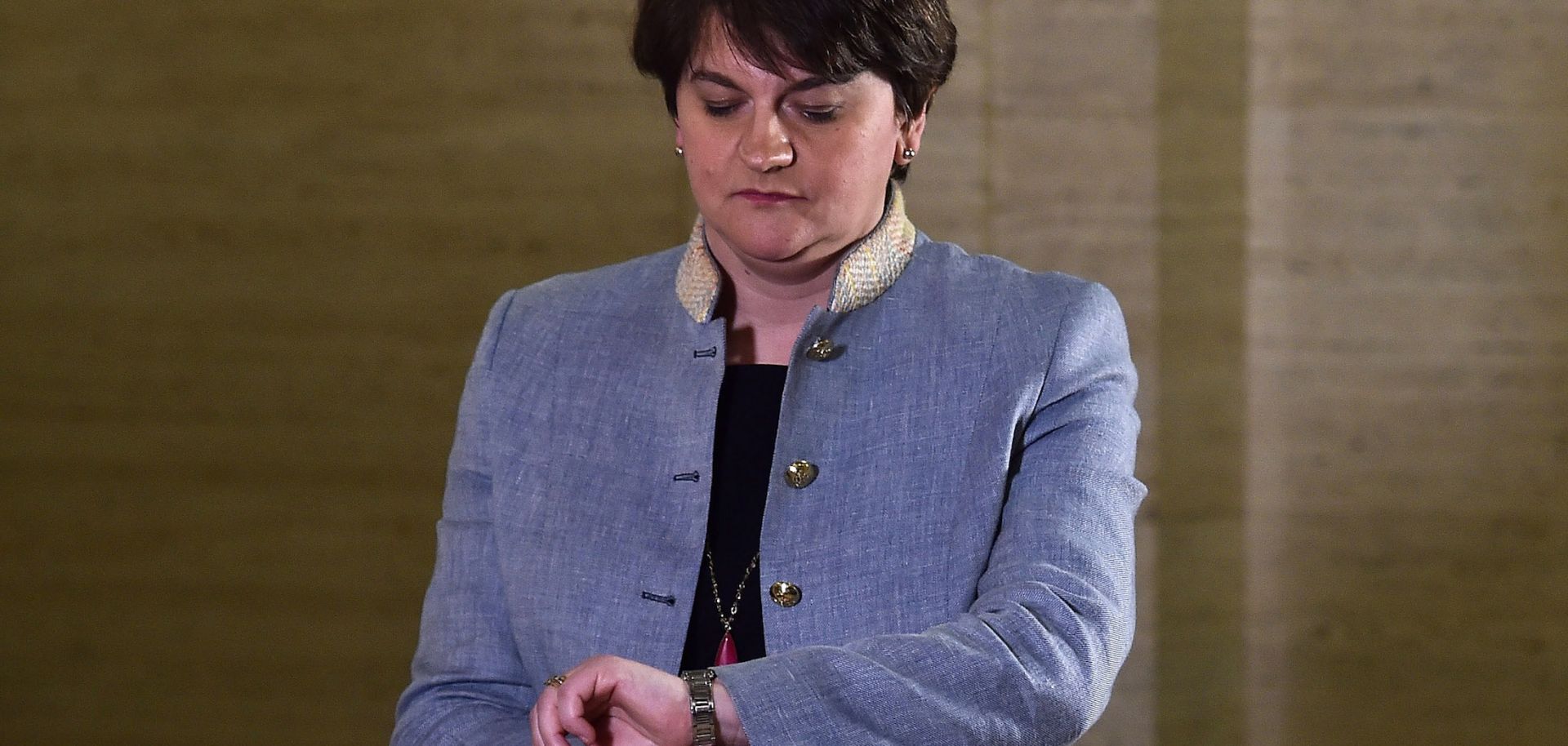The replacement of Northern Ireland’s first minister with a more hard-line leader could make it harder for unionists and republicans to cooperate in the implementation of the EU-U.K. Withdrawal Agreement, inspire new rounds of riots in the region, and ultimately jeopardize London and Brussels’ free trade agreement. On April 28, Arlene Foster announced she will step down as Northern Ireland’s first minister at the end of June and as leader of the Democratic Unionist Party (DUP) on May 28 amid growing calls for her exit within the party. Foster’s announcement comes a day after a group of more than 20 DUP members in both the Northern Irish Legislative Assembly and U.K. Parliament signed a letter withdrawing their confidence in Foster’s leadership. A small group of DUP members from the Northern Irish legislature and the U.K. Parliament -- most of whom signed the letter -- will now be tasked with appointing...

